The African Americans: Many Rivers to Cross - Season 1
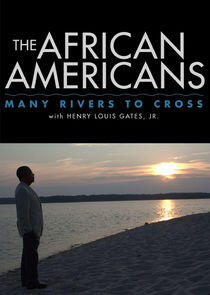
Season 1

Episodes
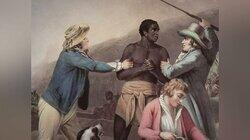
The Black Atlantic (1500-1800)
This episode explores the global experiences that created the African-American people. Beginning a century before the first documented "20-and-odd" slaves who arrived at Jamestown, Virginia, the episode portrays the earliest Africans, slave and free, who arrived on these shores. The transatlantic slave trade soon became a vast empire connecting three continents. Through stories of individuals caught in its web, the episode traces the emergence of plantation slavery in the American South and examines what the late 18th-century era of revolutions - American, French, and Haitian - would mean for African Americans and slavery in America.
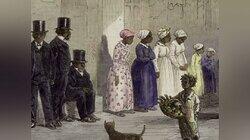
The Age of Slavery (1800-1860)
This episode illustrates how black lives changed dramatically in the aftermath of the American Revolution. For free black people, these years were a time of opportunity, but for most African Americans, the era represented a new nadir. King Cotton fueled the rapid expansion of slavery into new territories and the forcible relocation of African Americans to the Deep South. Yet, as slavery intensified, so did resistance. Individuals including Harriet Tubman, Richard Allen, and Frederick Douglass pushed the issue of slavery to the forefront of national politics. From individual acts to mass rebellions, African Americans demonstrated their determination to undermine and ultimately eradicate slavery.
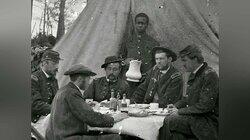
Into the Fire (1861-1896)
This episode examines the most tumultuous and consequential period in African-American history: the Civil War and the end of slavery, and Reconstruction's thrilling but brief "moment in the sun." From the beginning, African Americans were agents of their liberation - by fleeing the plantations and taking up arms to serve in the United States Colored Troops. After Emancipation, African Americans sought to realize the promise of freedom - rebuilding families shattered by slavery; demanding economic, political, and civil rights; even winning elected office - but a few years later, an intransigent South mounted a swift and vicious campaign of terror to restore white supremacy and roll back African-American rights. Yet the achievements of Reconstruction remained in the collective memory of the African-American community.
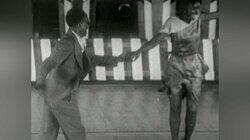
Making a Way Out of No Way (1897-1940)
This episode portrays the Jim Crow era when African Americans struggled to build their own worlds within the harsh, narrow confines of segregation. At the turn of the 20th century, a steady stream of African Americans left the South, fleeing the threat of racial violence and searching for opportunities in the North and West. Leaders like Ida B. Wells, W.E.B. Du Bois, Booker T. Washington, and Marcus Garvey organized, offering different strategies to further black empowerment and equality. The ascendance of black arts and culture showed that a community with a strong identity and sense of pride was taking hold in spite of Jim Crow. "The Harlem Renaissance" redefined how America saw African Americans - and how African Americans saw themselves.
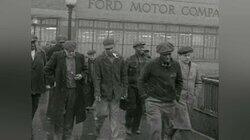
Rise! (1940-1968)
This episode examines the long road to civil rights when the deep contradictions in American society finally became unsustainable. African Americans who fought fascism in World War II came home to face the same old racial violence. But mass media - from print to radio and TV - broadcast that injustice, planting seeds of resistance. The success of black entrepreneurs and entertainers fueled African-American hopes and dreams. In 1955, Rosa Parks refused to give up her seat on a city bus in Montgomery, Alabama, heralding the dawn of a movement of resistance, with Dr. Martin Luther King, Jr. as its public face. Before long, masses of African Americans practiced this nonviolent approach to integrate blacks and whites in public schools, lunch counters, and more. Nonviolence, however, was often met with violence. In 1968, Dr. King was assassinated, unleashing a new call for "Black Power" across the country.
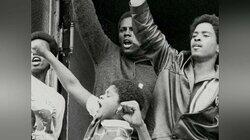
A More Perfect Union (1968-2013)
After 1968, African Americans set out to build a bright future on the foundation of the civil rights movement's victories, but a growing class disparity threatened to split the black community. As African Americans won political office across the country and the black middle class made progress, larger economic and political forces isolated the black urban poor. When Barack Obama was elected president in 2008, many hoped that America had finally transcended racism. By the time of his second victory, however, it was clear that many issues, including true racial equality, remain to be resolved. How will African Americans help redefine the United States in the years to come?
Recently Updated Shows

Diners, Drive-Ins and Dives
With roadside diners, vintage drive-ins and out-of-the-way "dives" enjoying a resurgence of hipness among foodies, host Guy Fieri travels across America in search of some of the best "greasy spoon" eateries. The restaurants that Guy visits are usually well-known among locals and other people in the region. While at each location, Fieri talks to the staff as well as the customers to get their thoughts on the food. Many episodes feature eateries that are connected by a common thread, such as burgers or comfort foods but its all here on Diners, Drive-Ins and Dives.
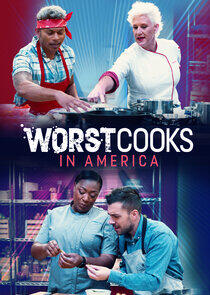
Worst Cooks in America
Chef Anne Burrell is back for a seventh season of trying to turn some of America's worst cooks into kitchen stars. This time, however, the recruits are seven celebrities who can showcase their talents on TV and in movies, but not no so much in the kitchen. Burrell competes against Worst Cooks in America newcomer Rachael Ray to see which chef can lead one contestant to make the most impressive culinary transformation. Actors Dean Cain, Ellen Cleghorne, Jaleel White and Barry Williams join reality stars Jenni "JWoww" Farley, Chris Soules and Kendra Wilkinson in boot camp. The winning star gets $50,000 for charity and bragging rights for his or her mentor. Not all of the celebrities will make the cut, however; after an opening potluck dinner each mentor selects three recruits to be on her team, leaving one celebrity to be sent home before the competition really begins. Burrell is looking to extend her record to 5-2, while Ray looks to get the win in her first season.

My Lottery Dream Home
David Bromstad takes recent lottery winners on over-the-top house hunts for their new dream homes. Whether they win hundreds of thousands or hundreds of millions, lucky lottery winners everywhere are jumping headfirst into the real estate market. Will they spend all their winnings on an extravagant mansion or settle for a humble sound investment? Find out what happens when average Americans set out to find My Lottery Dream Home.

Robin Hood
Robin Hood is described as a sweeping, romantic adventure, a modern take of the classic tale that brings historical authenticity, psychological depth, and a heightened focus on the relationship between Rob and Marian.
In the series, following the Norman invasion of England, Rob – a Saxon forester's son – and Marian, the daughter of a Norman lord – fall in love and work together to fight for justice and freedom. As Rob rises as the leader of a band of rebel outlaws, Marian infiltrates the power at court, as both work together to thwart royal corruption and bring peace to the land.
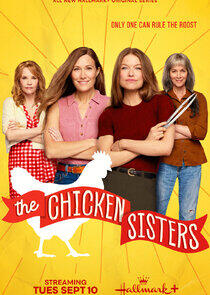
The Chicken Sisters
The Chicken Sisters is a family drama dipped in southern charm and served up with a saucy side of romance. The setting is the fictional town of Merinac, where a generations-old rift between dueling fried chicken restaurants – Mimi's and Frannie's – has left the founders' families fractured and the locals taking sides. When popular cooking competition show Kitchen Clash comes to town, this could be the recipe for ending this feud once and for all. But things are fixing to heat up both inside and outside of the kitchen as the reality show spotlight causes sparks to fly as secrets are spilled and feathers get ruffled.